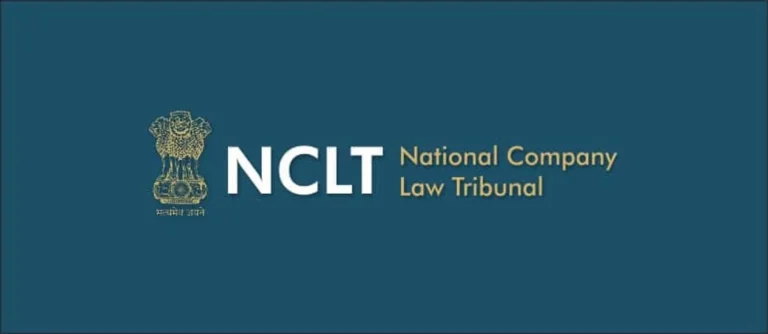
In a huge victory for academic freedom and international education, a federal appeals court recently overturned a policy that was implemented during the Trump administration and would have required overseas students attending Harvard University to leave the United States if their classes were only given online.
Following a protracted legal battle, the decision was made over five years after the policy was first proclaimed. A great number of students and educational institutions get rid of a cloud of uncertainty as a result of the verdict, which also highlights the power of the judiciary to check presidential measures that have an impact on immigration and higher education.
The History of the Preventing of Enrollment
It was stated in July 2020 that the Department of Homeland Security and the United States Immigration and Customs Enforcement would be working together to issue a directive that would require all international students studying in the United States to attend at least one in-person class in order to keep their visa status alive.
For any queries or to publish an article or post or advertisement on our platform, do call at +91 6377460764 or email us at contact@legalmaestros.com.
It was in response to the change toward online education that was brought about by the COVID-19 epidemic that the policy was developed. In accordance with the new regulation, any overseas student who holds a sole enrollment in online classes will be required to leave the country or risk having their visas revoked.
The news caused tens of thousands of students to have their academic plans thrown off, and it also caused relationships between the federal government and colleges in the United States to become strained.
For More Updates & Regular Notes Join Our Whats App Group (https://chat.whatsapp.com/DkucckgAEJbCtXwXr2yIt0) and Telegram Group ( https://t.me/legalmaestroeducators )
For any queries or to publish an article or post or advertisement on our platform, do call at +91 6377460764 or email us at contact@legalmaestros.com.
Harvard and MIT have filed a legal challenge.
Both Harvard University and the Massachusetts Institute of Technology filed lawsuits in federal court in Massachusetts within a few days of the introduction of the policy. The cases argued that the directive exceeded the authority of the administration and violated federal law.
The institutions argued that the policy did not only put students’ safety in jeopardy but also posed a threat to public health because it discouraged students from engaging in online learning during a pandemic season.
Not only that, but they also asserted that the rule did not adhere to the procedures that are mandated by the Administrative Procedure Act because it was adopted without the appropriate notice and without providing the chance for public comment.
For any queries or to publish an article or post or advertisement on our platform, do call at +91 6377460764 or email us at contact@legalmaestros.com.
Appeals and decisions from the District Court
A preliminary injunction was granted by the district court in Boston, which put a stop to the policy’s implementation across the country with immediate effect.
According to the judge’s decision, the institutions had a good chance of winning their case on the basis of the merits of their claims, and the judge also determined that if international students were forced to leave, it would result in irreparable injury.
However, the injunction was affirmed by the First Circuit Court of Appeals, which emphasized that the policy was arbitrary and capricious. The government filed an appeal against the decision. Taking into view the abrupt nature of the directive as well as its failure to take into account public health concerns or the logistical issues that institutions face, the court of appeals made its observations.
For any queries or to publish an article or post or advertisement on our platform, do call at +91 6377460764 or email us at contact@legalmaestros.com.
The decision of the Appeals Court to overturn the ban
A panel of three judges from the First Circuit Court of Appeals recently issued a judgment in which they permanently overturned the policy. In its decision, the court came to the conclusion that the government did not have the statutory right to place such extensive limits on student visas.
The investigation came to the conclusion that the directive was in violation of the statutory framework that governs student admissions and that it overlooked the role that the Department of State and Congress play in determining visa requirements. The court underlined that major changes that affect immigration status require unambiguous authority from elected politicians and transparent rulemaking processes. This was accomplished by striking down the rule.
Possible Consequences for Students from Other Countries
The ruling of the appeals court instantly reinstates the rights of international students to enroll in fully online classes at university campuses in the United States, including Harvard and other colleges.
For any queries or to publish an article or post or advertisement on our platform, do call at +91 6377460764 or email us at contact@legalmaestros.com.
It is now possible for thousands of students who were previously concerned about having their travel plans and academic schedules disrupted to continue their study without the risk of having their visas revoked.
In addition, the verdict offers assurance to prospective students who had previously postponed their admissions or pondered enrolling in other different programs. A vulnerable population that makes a substantial contribution to campus diversity and research projects is supported by the decision, which contributes to the elimination of concerns regarding forced departures. This decision also supports mental health and academic continuity.
The Reactions of the University and Students
A sense of relief and optimism was expressed by university administrators and student leaders in response to the ruling made by the court. Using the phrase “a reaffirmation of the importance of academic freedom and the value of global scholarship,” the provost of Harvard University issued a statement expressing his satisfaction with the decision.
For any queries or to publish an article or post or advertisement on our platform, do call at +91 6377460764 or email us at contact@legalmaestros.com.
The decision was regarded as “life-changing” by student organizations that represent overseas scholars. This decision was made for individuals who had postponed personal goals, research projects, and internships. Several students shared their experiences of the financial and mental strain they went through while waiting for the verdict, underlining the fact that the sudden nature of the policy caused disruptions in accommodation, travel plans, and the expectations of their families.
Influence on Immigration and Education Policy That Is More Comprehensive
Beyond the confines of Harvard, the decision has wider-ranging ramifications for the administration of student visas and the policies of the federal government regarding immigration. The message that it sends to future administrations is that any significant modifications to visa regulations must be in accordance with statutory standards and open rulemaking regulations.
The verdict may have an impact on other cases that are now ongoing and challenge executive measures regarding travel bans and visas. The fact that it highlights the interconnectedness between immigration policy and higher education also serves to remind policymakers that colleges in the United States are dependent on talent from around the world in order to keep their competitive advantage in areas such as research, innovation, and cultural exchange.
For any queries or to publish an article or post or advertisement on our platform, do call at +91 6377460764 or email us at contact@legalmaestros.com.
Observation of the Judicial System’s Role
The ruling of the court of appeals calls attention to the significant role that the judiciary plays in examining executive actions that have an impact on constitutional rights and legislative frameworks. In order to guarantee that impacted parties were able to have their voices heard and that the regulation was in line with the scope of executive authority, the court examined the constitutionality of the policy as well as any procedural faults that it included.
Experts in the field of law have pointed out that the case upholds norms that require agencies to justify significant policy decisions with some sort of rational argument. The verdict has the potential to set a precedent for future challenges to administrative directives that have an effect on vulnerable populations and the fundamental activities of public institutions or organizations.
There has been a significant turning point for international education in the United States, as evidenced by the decision of the First Circuit Court of Appeals to reverse the restriction imposed by the Trump administration on online-only enrollment for overseas students. Restoring academic stability to thousands of students, upholding the rule of law, and reminding agencies of the necessity of transparent policymaking are all functions that are accomplished by this.
For any queries or to publish an article or post or advertisement on our platform, do call at +91 6377460764 or email us at contact@legalmaestros.com.
The verdict provides a solid basis for preparing both online and in-person programs, which is becoming increasingly important as educational institutions get ready for the upcoming academic year. Taking a broader perspective, it illustrates how the courts may protect individual rights and institutional autonomy from presidential overreach, so ensuring that higher education in the United States continues to be accessible and hospitable to individuals from all over the world.




![Research Assistantship @ Sahibnoor Singh Sindhu, [Remote; Stipend of Rs. 7.5k; Dec 2025 & Jan 2026]: Apply by Nov 14, 2025!](https://legalmaestros.com/wp-content/uploads/2025/11/Gemini_Generated_Image_s0k4u6s0k4u6s0k4-768x707.png)
![Karanjawala & Co Hiring Freshers for Legal Counsel [Immediate Joining; Full Time Position in Delhi]: Apply Now!](https://legalmaestros.com/wp-content/uploads/2025/11/Gemini_Generated_Image_52f8mg52f8mg52f8-768x711.png)
![Part-Time Legal Associate / Legal Intern @ Juris at Work [Remote]: Apply Now!](https://legalmaestros.com/wp-content/uploads/2025/11/ChatGPT-Image-Nov-12-2025-08_08_41-PM-768x768.png)
![JOB POST: Legal Content Manager at Lawctopus [3-7 Years PQE; Salary Upto Rs. 70k; Remote]: Rolling Applications!](https://legalmaestros.com/wp-content/uploads/2025/11/ChatGPT-Image-Nov-12-2025-08_01_56-PM-768x768.png)